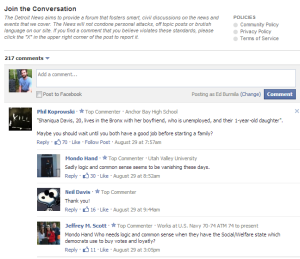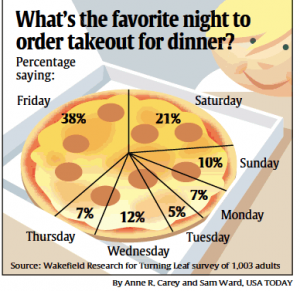By now you have probably seen the question New York Times public editor Arthur Brisbane put to readers, apparently in seriousness, which he phrased as, "Should the Times be a Truth Vigilante?" Brisbane does a fantastic job of sounding isolated, out of touch, and ignorant of the basic principles of journalism in asking readers:
I’m looking for reader input on whether and when New York Times news reporters should challenge “facts” that are asserted by newsmakers they write about.
In other words, the editor would like to know if readers want to see erroneous statements pointed out as such, or whether the paper should remain "objective" and simply recite whatever statements its "newsmakers" make unchallenged. When hundreds of commenters questioned his sanity, Brisbane closed the comments and typed the mother of all bitchy replies:
A large majority of respondents weighed in with, yes, you moron, The Times should check facts and print the truth.
That was not the question I was trying to ask. My inquiry related to whether The Times, in the text of news columns, should more aggressively rebut “facts” that are offered by newsmakers when those “facts” are in question. I consider this a difficult question, not an obvious one.
This is a difficult question? To understand why, consider his disastrously poor logic and mangled interpretation of two poorly chosen examples to illustrate his point. In the original post:
As cited in an Adam Liptak article on the Supreme Court, a court spokeswoman said Clarence Thomas had “misunderstood” a financial disclosure form when he failed to report his wife’s earnings from the Heritage Foundation. The reader thought it not likely that Mr. Thomas “misunderstood,” and instead that he simply chose not to report the information.
Then he explains what a difficult moral dilemma this is in the follow-up:
If you think that should be rebutted in the text of a story, it means you think a reporter can crawl inside the mind of a Supreme Court justice and report back. Or perhaps you think the reporter should just write that the “misunderstanding” excuse is bull and let it go at that. I would respectfully suggest that’s not a good approach.
This is where I start to question what journalism school graduated this dipshit. No, it is not necessary to "crawl inside the mind of a Supreme Court justice and report back.
online pharmacy
xenical no prescription
" Your reporter could, you know, investigate and report something along the lines of "In his 20 years on the bench, Mr. Thomas had filled out the form completely and correctly, including statements of his wife's income, every year.
buy clomid online alvitacare.com/wp-content/languages/new/where/clomid.html no prescription
It is therefore unclear how Mr. Thomas could have misunderstood the form this year since the reporting procedure has not changed."
See? Look how easy that was. No head-crawling-in required. No journalistic experience required. Just a basic understanding of how to challenge a subjective claim (such as "I forgot" or "I was unaware that…"). Then he parses his second example:
Another example: on the campaign trail, Mitt Romney often says President Obama has made speeches “apologizing for America,” a phrase to which Paul Krugman objected in a December 23 column arguing that politics has advanced to the “post-truth” stage…If so, then perhaps the next time Mr.
Romney says the president has a habit of apologizing for his country, the reporter should insert a paragraph saying, more or less:
“The president has never used the word ‘apologize’ in a speech about U.S. policy or history. Any assertion that he has apologized for U.S. actions rests on a misleading interpretation of the president’s words.”
Yeah, or rather than picking nits over the use of specific words the reporter could, you know, ask his interviewee to cite some goddamn evidence. "Mr. Romney, can you provide an example of President Obama apologizing for America?" Again: look how easy this is. I'm not even a journalist.
A clearer, less ambiguous example is the Republicans' repeated use over the last several years of the statement "Social Security is going broke" or variations thereof. Left untouched, it is indisputable that Social Security is solvent for at least 30, and likely around 40, additional years. That is very far from "broke", and even the qualifier that it is "going" broke is ludicrous given the timeframe. This statement should never, ever be reported unchallenged. Yet in practice it is never challenged. It is simply repeated after phrases like "Lindsey Graham (R-SC) said…"
It is legitimate to wonder how an editor from the New York Times could fail to understand this fundamental concept, or how he would need to solicit input from the mob to determine whether his reporters should practice basic journalism. But for someone so thoroughly steeped in, and partially responsible for the growth of, the Journalism as Stenography model, Brisbane's tentativeness is understandable. Modern journalism isn't about reporting and investigating and fact-checking, per se; it is about churning out a product, one that will appeal to the largest possible number of people. Muckraking is out, and keeping the sources happy is in. This is why we have "journalism" consisting of rehashed (if that) press releases.
Brisbane's comments are the logical end of the False Equivalency model of journalism, wherein every story must be presented with two equally valid sides.
buy remdesivir online alvitacare.com/wp-content/languages/new/where/remdesivir.html no prescription
It's the "Some people say X, but other people say Y" technique writ large. How did this come to be? I think there are two answers to that question.
First, like on any other issue, people tend to idealize the past. American journalism has always been fairly weak on challenging people in positions of authority. Hearst and Pulitzer papers were hardly stuffed to the gills with Ida Tarbells. They were yellow rags with bleeding leads, and selling more copies was the only thing the editors cared about. While there may have been a greater emphasis on fact-checking as a result of fierce competition among newspapers, it's not like there's a golden age of investigative journalism in our recent past.
Second, the newspaper industry is dying, and fast. It is desperate to hold on to its remaining readers, and those readers are old. Really old. Old people don't want to be told that things they believe are not true. They're also the most likely to carp about Librul Bias if they aren't given an option to choose which "side" they will accept on any given story. The "Some people say X, but other people say Y" format was designed with their needs and wants in mind.
Brisbane is sad to watch here not because he is so clueless – and he is – but because you get the sense that he knows the right thing to do here and he realizes that he cannot do it. Editors are not editors because they understand journalism particularly well; they are in positions of authority because they understand the publication's need to market itself to the widest possible audience. They are gatekeepers who exist not to enforce the standards of good reporting but to screen every story through the question, "How can we write this story without conservatives getting mad at us?" And we will continue to be overwhelmingly screwed as a society as long as we define objectivity as quoting official sources uncritically and presenting opposing viewpoints as inherently equally valid.




